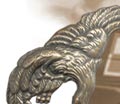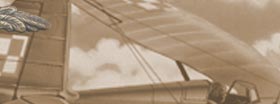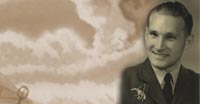Far From My Home, Never to Return: A Polish Child’s WWII Memoir
By Nadia Seluga, Barbourville, KY, USA. Martin Sisters Publishing
ISBN 978-1937273330
The account opens with Nadia describing the rural life in Łunin, a small hamlet in an area known as the Prypet Marshes in the former eastern Poland (Polesie) or Byelorussia at the outbreak of war. Here we learn of her family, its ancestry and daily life on a farm and the rhythm of Sunday by going to church after routine chores. The innocence of a child’s game being shattered by a bomb falling onto the village’s railway line brings to a standstill Nadia’s childhood. Afterwards Nadia ran home. Her mother recounts ‘war’ and what it done it her family just twenty-five years earlier and despite the commotion a two week ‘lull’ never prepared them for the invasion by the Soviets.
The arrival of tanks and the shouts of ‘liberation’ masked a more sinister turn of events when local administrators and local dignitaries were subject to beatings. Once her sister Janka had visited the local town of Łuniniec and witnessed a local skirmish. The dawn of ‘sovietization’ had a more chilling effect upon the children as simple events, for example a Russian replaced their local teacher and the introduction of Russian as the official language. A false sense of peace enabled propaganda and the reinforcing of Soviet ‘might’ slowly altering Nadia’s life through parades and other Soviet symbols. It was during this period many of the men who were in hiding returned home and some semblance of normality returned as families prepared for Christmas.
At dawn Saturday 10th February 1940 betrayal and deportation saw the whole family take what belongings they could load into the horse-drawn cart and set off for a waiting train. Locked into the boxcar they sped east and for poor Nadia the realization that her favourite doll and other mementoes had been left behind brought sadness. As they settled into a daily rhythm towards an unknown destination conditions were eased by families mutually supporting each other. On arrival in Moscow the marshalling yards had many other trains with deportees heading east. While basic refreshment was provided, an informer warned the guards that drinking water was being made from the snow resulted in bars being placed across the window. Whoever informed on them they never found out and the scum (svoloch) hopefully ended up in the Siberian labour camps. When the train eventually stopped, horse drawn sledges carried them and what belongings they had into camp Listvinnitsa 200 Km south of Archangel.
Greeted with meagre rations of bread and ‘Kipyatok’ (boiling water) the ‘temporary quarters’ housed the family as they awaited ration cards and bedding. Orders for labour parties were issued with the men working in the forests for timber while the women were taken to the state farm (kolkhoz). Poor living conditions and bedding infested with lice and bugs tested the mettle of individuals and the family as their health deteriorated. Although moved to better quarters with washing facilities the lack of ‘basics’ made life tough – even getting to school in the neighbouring camp some 3Km away was difficult in the snow and the penetrating cold. Waiting in line for bread was challenging enough and the camp life and culture called Nadia to question the existence of God particularly when her school-friend Krysia died. Food and survival were a preoccupation and after being granted land to grow vegetables or picking of seasonal fruit, life seemed a little easier despite the short transition of the seasons. A change in camp-commander brought warning of change, but despite this a kind gesture to dig the well deeper resulted in additional rations being provided. Despite the Poles being sentenced to five years hard labour, the daily quotas if not met resulted in reduced rations for bread and this included skipping off school. Her sister Olesia who was thirteen years old had difficulty in maintaining daily quotas for stripped Birch bark and here is a moving moment when brother Antek secretly took bark from others to fulfill the quota. As winter approach the school children helped with harvest and storage of feedstuff. The continued Sovietization included teachers expounding the achievements of the Great Leader Stalin or the wonderful achievements of the Komsomol. This failed miserably to challenge the values and beliefs held by the Polish deportees, particularly when the camp commandant inexplicably removed the growing of vegetables. Antek’s protest at the decision resulted in removing roof shingles on the meeting hall was effortlessly managed by the authorities where parents were required to ensure the offenders repaired the damage or face prison – an outcome possibly not anticipated by the protestors.
The invasion of Russia by Germany in Operation Barbarossa gave a short sense of hope in escape or return home. By now Nadia was old enough to take on other duties looking after a local family’s children for the reward of improved food. The family proved to be decent employers of the Polish men from the camp who assisted in harvesting the meadows for hay in return for white bread of which, had not been seen since leaving Poland.
Amnesty rejuvenated the Polish deportees morale and excitement built up amongst adults and children alike and although the school closed, camp duties and the planned move south was a pre-occupation. Her father, now a butcher was secreting tallow out of his work place until a warning that the NKVD would raid the family quarters. To avoid detection Antek came up with a ruse that saved the family and their secret stash under the floorboards, which demonstrated ingenuity in a hostile environment. And then, the refugees started heading south in search of the Polish Army. A move to camp 8 with all their belongings on a sled heralded the start of their journey south to the railway station at Plisieck. Prolonged malnutrition and freezing Siberian weather was taking its toll on the deportees as the station looked more like a morgue. Scavenging for firewood or coal helped them to survive the train trip. Organized cleaning duties ensured survival in the crowded boxcar. Unfortunately, their father became separated at a stopover as he sought information. It took him three days to catch up and in that period the organization within the boxcar fell into disarray. The journey south remained hazardous when incidents could have caused permanent separation. Sister Janka was unable to re-board the departing train and had actually managed to climb aboard a small platform exposed to the elements for the remainder of the night. It is moments like this in Nadia’s description of her journey that she seeks to share the positive experience rather than dwell upon the brutality of what they were experiencing.
On arrival at Buzuluk the Polish Army under General Anders had organized wholesome food and the celebration of mass before the train took them further south across the steppes towards Tashkient in Uzbekistan then onto Bukhara and finally arriving in Kitab after two months in transit. Again, Nadia and her family were put to work, this time in the cotton fields while their father worked in the local town. Struck down by typhus, Nadia was taken to hospital where the lack of medical facilities and shortage of food added to her misery until her sister Olesia was brought in. Both had to share a bed due to the size of the outbreak. Nadia never complained and accepted her fate when even the removal of her hair or the loss of her clothes failed to faze her.
Boarding a ship at Krasnovodsk on the Caspian Sea the were family bound for Persia (Iran). The cold, hunger and poor conditions had not been escaped, but on landing in Pahlevi, the relief of leaving the Soviet Union and loss of oppression was great. Life in Persia was exotic compared to the recent past and support from the exiled Polish Army in the provision of food and shelter saved many lives of extremely weakened individuals. Care of orphaned children and the de-lousing formed part of a more secure orderly life. Moved on to a camp in Tehran, the children returned to school then Nadia succumbed to pneumonia and dysentery, which was common to those deportees suffering from malnutrition whether in camps in Persia or Iraq. The toll on the children was unbearable to witness. At this point, Nadia’s younger sister Marysia was close to death and their mother stayed behind to assist in her recovery which took six months while the remaining children in the family were transferred to No.3 camp on the outskirts of Tehran. Her father was fit enough to be called up into the Polish Army and posted to Iraq leaving all future communications through the Red Cross and this was the last sight of her father until they met again in England in 1948.
Moved to Ahvaz by the Polish Army, Nadia’s odyssey through foreign lands far from home led to Karachi and then boarded a ship travelling in a convoy to Mombassa. On embarkation they took a train via Nairobi in Kenya and then onto Mukono in Uganda and finally settling in Koja for the next four years. Throughout the journey Nadia soaked up the rich visual tapestry of African culture and the wildlife. At times they felt they were being ‘shunted’ to the end of the World. However, Nadia felt this was going to be a ‘good life’ and leave all the worries to the adults. Equipped with tools and the opportunity to return to schooling, Nadia describes life in the village. Battles with snakes, termites or lizards and regular infections are described in a matter-of-fact way that avoids sentimentality or morbidity that would have detracted from the dialog. More deportees joined them and the camp was slowly transformed through the construction of a brick built church where everyone ‘mucked in’ to make bricks. The first letter from their father in 1943 brought relief since he had been in contact with Antek too, but the letter also conveyed the message from General Anders that discussions or complaints about their time in Russia could still bring retribution on other surviving family. As life improved, it is the recall of simple thinks like a galvanised bath for bathing that reminds the reader of the true hardship and suffering they had been through. As the camp grew, life adapted to the culture and climate. The regulations imposed by a colonial regime forbade close contact and employment of local people to assist with daily chores like cutting firewood which could result in imprisonment - much to the astonishment of those who had survived the gulags. Joining the Girl Guides or learning English provided another escape from camp routines. Both their father and Antek kept in better contact with letters and parcels to ease their plight. It is often forgotten the Polish Army had a sophisticated educational programme for combatants and young cadets that enabled many to matriculate or complete degrees despite being in major theatres of war.
Churchill’s speech and the declaration of the ‘Curzon Line’ brought much debate amongst the deportees in the camp about their future under Stalin and the disbelief America would not stand up for them. Nadia came to learn of the place called ‘Yalta’ and how it had changed yet again her life forever. Even the idyllic camp life turned sour when the Ugandans’ felt let down and troops were brought in to protect the deportees until the problem was resolved. From 1946 to 1947 uncertainty and expectations were rife in the camp. Subtle pressures to return to the war-torn Poland were placed upon the deportees. Although they had been notified they could migrate to England, it was not until 1948 they left. In the intervening period school and camp life continued at its own pace except from when they moved homes. A scout and guide parade signalled the closure of this period in Nadia’s life and her family who had travelled so far and suffered so much. Sailing from Mombassa on the Carnarvon Castle seemed to be just another ‘leg’ in a long journey. On arrival in the UK the family were interned in a Polish Resettlement Camp at Daglingworth in Gloucestershire where they were reunited with their father and Antek who had both served in the Polish II Corps in the Italian campaign.
The story is full of cameo scenes of a young girl growing up and recalling life in the village through the seasons. Games played with school friends or with family to the backdrop of change where a simple dolls party turns into a more final event where a child is parted from her friends and precious doll. Even in Siberian camp, there were occasions when the pilfering of peas or the making of a garland of flowers seems to have broken the monotony of camp life and the ability to survive the brutality. To beat the gulag system Antek’s held mock fights in the canteen with a distant cousin, which assisted in coupons being pilfered while supervision was distracted. Story telling and reflecting on their former life helped pass the time away, particularly when her father was a ranger on the estate of Prince Drucki-Lubecki. Playing simple games or a contest of egg rolling (while in Persia) is presented with fond memories. While in Uganda reciting poems under the stars or venturing into the jungle kept young minds occupied.
Nadia’s account of the Soviet invasion of Poland and their subsequent deportation is never sentimental or fully recounts the brutality they endured in the gulags or on their journey to ‘freedom’. It is a poignant account that reminds all of us that humanity despite all its failings allows inner strength, family love and faith to overcome some of the most appalling conditions meted out on the Poles.
Julian Hoseason, editor polandinexile.com





